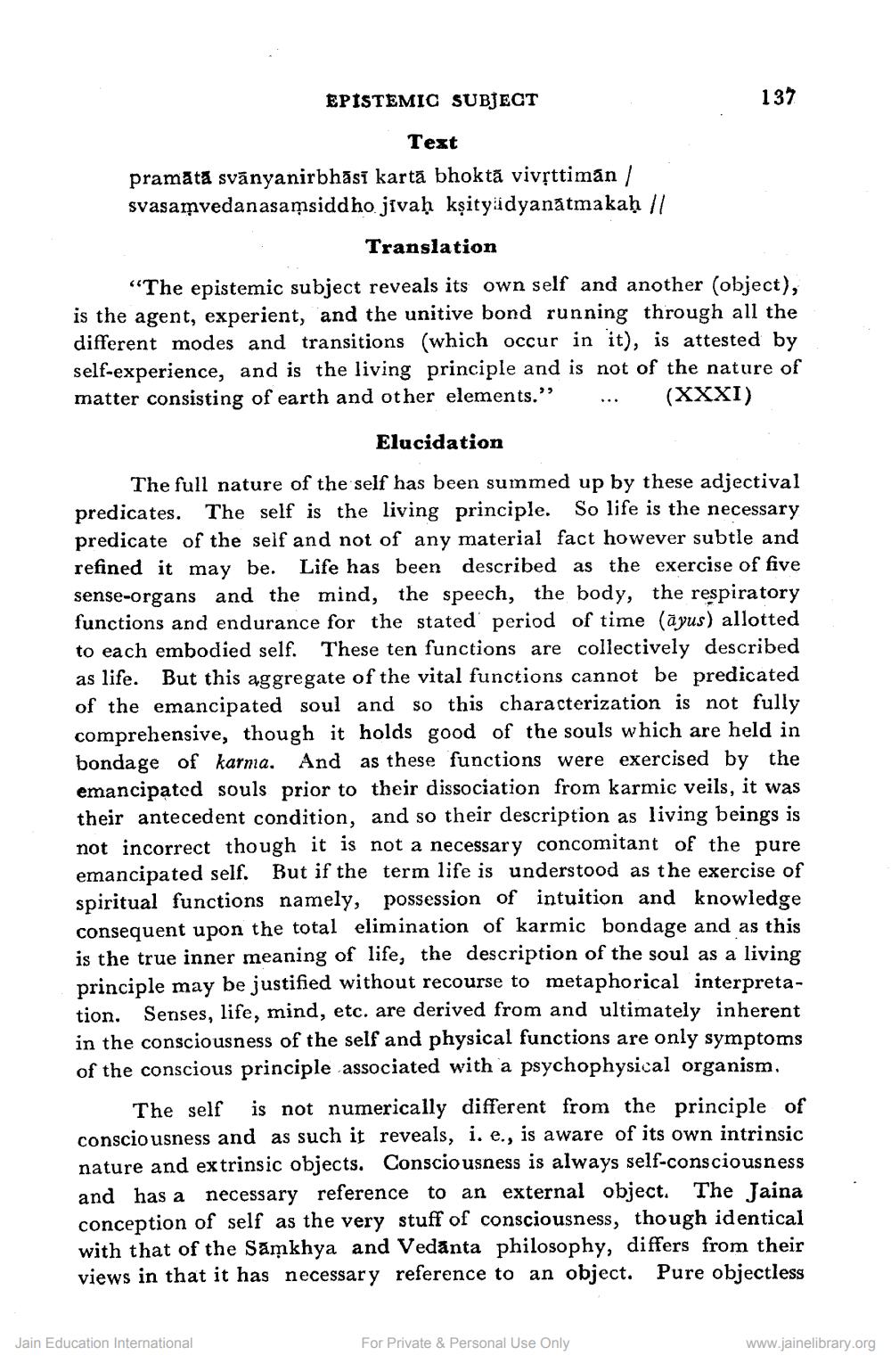________________
EPISTEMIC SUBJECT
137
Text pramata svānyanirbhāsī kartā bhoktā vivșttiman svasamvedanasamsiddho jívaḥ kṣityádyanatmakaḥ ||
Translation “The epistemic subject reveals its own self and another (object), is the agent, experient, and the unitive bond running through all the different modes and transitions (which occur in it), is attested by self-experience, and is the living principle and is not of the nature of matter consisting of earth and other elements.” ... (XXXI)
Elucidation
The full nature of the self has been summed up by these adjectival predicates. The self is the living principle. So life is the necessary predicate of the self and not of any material fact however subtle and refined it may be. Life has been described as the exercise of five sense-organs and the mind, the speech, the body, the respiratory functions and endurance for the stated period of time (äyus) allotted to each embodied self. These ten functions are collectively described as life. But this aggregate of the vital functions cannot be predicated of the emancipated soul and so this characterization is not fully comprehensive, though it holds good of the souls which are held in bondage of karma. And as these functions were exercised by the emancipated souls prior to their dissociation from karmic veils, it was their antecedent condition, and so their description as living beings is not incorrect though it is not a necessary concomitant of the pure emancipated self. But if the term life is understood as the exercise of spiritual functions namely, possession of intuition and knowledge consequent upon the total elimination of karmic bondage and as this is the true inner meaning of life, the description of the soul as a living principle may be justified without recourse to metaphorical interpretation. Senses, life, mind, etc. are derived from and ultimately inherent in the consciousness of the self and physical functions are only symptoms of the conscious principle associated with a psychophysical organism.
The self is not numerically different from the principle of consciousness and as such it reveals, i. e., is aware of its own intrinsic nature and extrinsic objects. Consciousness is always self-consciousness and has a necessary reference to an external object. The Jaina conception of self as the very stuff of consciousness, though identical with that of the Samkhya and Vedānta philosophy, differs from their views in that it has necessary reference to an object. Pure objectless
Jain Education International
For Private & Personal Use Only
www.jainelibrary.org




